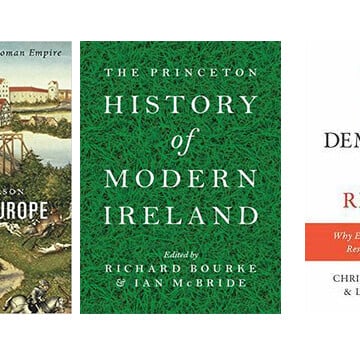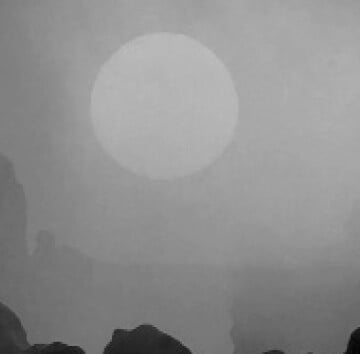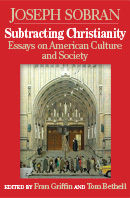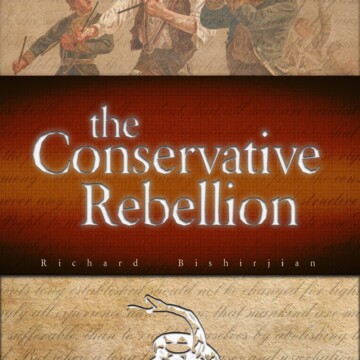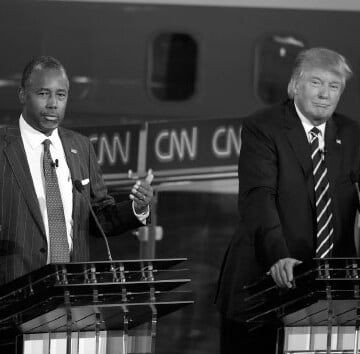Having re-rigged my fishing gear over the summer and purchased a new nine-and-a-half-foot No. 6 fly rod by Scott, and a Lamson reel to mount on it, I’ve finally got round to reading a book that’s lain neglected in my sporting library for far too many years. Ray Bergman’s Trout, first published in 1938, has...
Author: Chilton Williamson (Chilton Williamson)
Books in Brief
Lusitania: The Cultural History of a Catastrophe, by Willi Jasper, translated by Stewart Spencer (New Haven, CT: Yale University Press; 233 pp., $30.00). Readers wanting a detailed narrative history of the torpedoing and sinking of the Lusitania in 1915 on the order of Walter Lord’s A Night to Remember about the loss of the Titanic...
Class and Identity
Liberalism is an increasingly organized, coordinated, and aggressive assault upon human society, even the human race. Its grotesquely perverted, officially imposed, and relentlessly enforced understanding of humanity and what it means to be a human being has sundered over the past half-century the historical connections between traditional societies and contemporary ones to the extent that...
Books in Brief
Somme: Into the Breach, by Hugh Sebag-Montefiore (Cambridge: Belknap/Harvard, 607 pp., $35.00). This book is a superlative history of the Battle of the Somme between July 1 and November 18, 1916, by the author of Dunkirk: Fight to the Last Man. Sebag-Montefiore’s masterly account of the engagement that claimed more than a million men dead...
No Surrender
People whose families did not arrive in America yesterday or the day before yesterday are likely to discover, some time or another, among their parents’ and grandparents’ effects small, faded campaign buttons advocating Coolidge for President, or FDR, and later larger and more elaborate buttons promoting Eisenhower-Nixon, or Stevenson-Kefauver, Kennedy-Johnson, Goldwater-Miller, Reagan-Bush, and perhaps Clinton-Gore. ...
Liberalism in the Headlights
The murder of five white police officers in Dallas, immediately following the fatal shootings of a black man in Louisiana and another in Minnesota, gave President Obama the opportunity to engage in still another of the flights of soaring clichés and wafting banalities for which his admirers celebrate him; Hillary Clinton the chance to demonstrate...
Books in Brief
John Quincy Adams: Militant Spirit, by James Traub (New York: Basic Books, 620 pp., $45.00). This well-written and highly readable biography, addressed to the general reader rather than to the academic historian, is nevertheless a substantial as well as a highly accessible work by a professor of foreign policy at New York University. Traub’s presentation...
What the Editors Are Reading
Two years ago, while we were visiting friends in Tuscany 20 or so kilometers north of Florence, my host remarked that it was in those parts that Giovanni Boccaccio composed the Decameron, the first draft of which he completed in 1351. The Decameron was one of many books I’d thought for years to read, without...
Merely a Pretext
Liberals say they believe in democracy, meaning government that represents and listens to the people whose instrument it is supposed to be. Yet democratic governments today clearly do not listen to the people, if “listening” means trying to understand what they have to say. The most obvious current example of Western politicians’ willful deafness to,...
In Another Country
A vast, under-populated Western country. A densely populated neighboring one and member of the quasi-Third World immediately south of the border. Human labor in demand in the north, an overabundance of it in the south. A lazy, somewhat dissipated and decadent, aging northern population facing an energetic, youthful, and entrepreneurial one southward across a riverine...
Books in Brief
The Life of Louis XVI, by John Hardman (New Haven, CT, and London: Yale University Press, 499 pp., $29.00). This sympathetic, indeed deeply moving, biography of the ill-fated king is dramatic and mostly well written, save in certain instances where I found the presentation of particular events (such as the controversy at the immediate start...
Now There Will Always Be an England
The tenor—and temper—of the debate leading up to the British referendum on the United Kingdom’s continued membership in the European Union on June 23 hardly suggested the rhetorical and emotional violence of the response by the proponents of Remain to their substantial defeat by a margin of 52 to 48—a figure some of them pounced...
Tocqueville, Santayana, and Donald Trump
“To be an American,” George Santayana said, “is of itself almost a moral condition, an education, and a career.” For Americans and non-Americans alike, the American people has seemed a recognizable and describable breed from the earliest years of the Republic down to the 21st century, despite America’s reputation as a nation hospitable to immigration...
What the Editors Are Reading
About once a year I return to the works of my old friend Edward Abbey, the Jeffersonian environmentalist, who died in 1989 at the age of 62. Unlike the modern environmentalist, who is typically an urban chair-sitter, fundraiser, and postdemocratic politician, Ed Abbey was the real thing as well as a fine writer, competent equally...
With the GOP—Or Without It
Donald J. Trump is the political issue of our time. Yet Mr. Trump is, in a very real sense, peripheral to present events. He is a result, not the effective cause; a symptom, not the disease. The significant thing is not the rebel candidate but the crisis of the Republican Party, so long arriving, which...
Books in Brief
Heart of Europe: A History of the Holy Roman Empire, by Peter H. Wilson (Cambridge, MA: Belknap/Harvard, 942 pp., $39.95). Professor Wilson of Oxford University argues that the history of the Sanctum Imperium Romanum, despite its centrality to the history of Europe and its immense longevity (it lasted for more than a millennium, twice as...
What the Editors Are Reading
As usual, there are too many books on my reading table. As I continue with Les Trois Mousquetaires,which gets better with every page, I’m also finishing La parabola di Giobbe, a work of Christology (among other things) by David Maria Turoldo, a very holy man heavily inspired by Teilhard de Chardin, in whose own work...
That Bloody Woman
Margaret Thatcher, one of the most successful British prime ministers of modern times, was known to her enemies and detractors as “That Bloody Woman” (see Derek Turner’s review in this issue). America’s equivalent for Republicans and conservatives for the past 30 years has been Hillary Clinton, so much Mrs. Thatcher’s inferior in intelligence, talent, and...
Qin, Hadrian, Trump
A frequent English correspondent from Stratford-upon-Avon who contributes regularly to this magazine wrote recently to express the frustration mockers of Donald Trump’s Big Beautiful Wall have been causing him. Hadrian’s Wall, he pointed out, begun in a.d. 122 by the Roman Emperor Hadrian to keep the Picts and other barbarians from invading England from the...
Spread Far and Wide
The news was spread far and wide last weekend that George F. Will is no longer registered as a Republican and is now politically “unaffiliated,” owing to the GOP’s acceptance (however grudging) of Donald Trump as its presidential nominee. “Far and wide” is probably a good deal further than the columnist’s reputation, or even name...
The New French Resistance
Philippe de Villiers, a French entrepreneur, politician, and author, belongs to what one might call the New French Resistance, a group of contemporary French patriots for whom Paris, not Vichy, symbolizes treason against both the French Republic and the historic French nation. Descended from an aristocratic family in the Vendée, Villiers is the founder and...
Books in Brief
The English and Their History, by Robert Tombs (New York: Knopf; 1,024 pp., $45.00). This superb, and superbly readable, book is a model of historical writing for a general readership, outstanding for its concision, clarity, and even-handedness. The strong narrative component easily accommodates a tremendous amount of detail without ever becoming weighed down by it,...
Trump and His Enemies
To the extent that a man may be judged by his enemies, Donald Trump is a very good man, indeed. And the more extended and successful his campaign becomes, the more it proves that everything he has ever said about the conjoined political and media establishments in America is spot on, beginning with his charge...
Self, Secularism, and Suicide
The response of the Western European governments, and of a substantial portion of what is called the European elite—roughly speaking, the upper-middle classes—to the invasion of the Continent from the east and south must be among the most unusual and perverse spectacles in human history. For nearly a year now, the world has looked on...
The Hell With Spinach!
In the early years of the Republic Americans focused their efforts on democratic government, geographic expansion and settlement, and a program of national improvements intended to promote them. In the decades immediately following the War Between the States they concentrated on industrializing and amassing national wealth. Then, in the 1880’s and 90’s, they began to...
The More the Merrier
Almost since the passage of the Immigration and Naturalization Act of 1965, critics of American immigration policy have been suspicious of the political advantage the Democratic Party was taking of this crucial piece of legislation. Though Congress’s motive in passing the bill was, in political terms, more symbolic than partisan and tactical, the replacement of...
Had at the Souq
Brussels has been cackling like a hen that has just laid an Easter egg, but the cackling will stop when the egg cracks and a turkey buzzard sticks its red rubbery head through. In accordance with the agreement that was reached between the European Union and the Turkish government last winter, Greece and the E.U....
Books in Brief
Digital Is Destroying Everything, by Andrew V. Edwards (Lanham, MD: Rowman & Littlefield, 232 pp., $34.00). Edwards, a digital-marketing executive, states at the beginning of this book that it was not his intention to write “a rant against all things digital.” Nevertheless, his evaluation of what the digital revolution has wrought comes closer to an...
What the Editors Are Reading
I discovered the novels of Henry Rider Haggard as a boy living in London, where I came across them in a public library. His name was unknown to me, and I can no longer remember why I first pulled one of his books from the shelf and took it home. I must have devoured five...
End of the Liberal Dream
Hell hath no fury like a peaceable liberal whose peaceable cause seems to be losing—especially when that cause is represented by the liberal himself, as Hillary Clinton’s tirade in the guise of a concession speech in Manchester, New Hampshire, demonstrated. Liberals and liberalism are currently under siege in Western countries. So liberals are in a...
Sui Generis
The present volume, out last fall from the Fitzgerald Griffin Foundation, is as welcome as its predecessor, Joseph Sobran: The National Review Years, published in 2012. For the new collection, the editors have selected columns, articles, and essays drawn from across the spectrum of Sobran’s outlets, including the Universal Press Syndicate and Griffin Internet Syndicate,...
Books in Brief
The Royalist Revolution: Monarchy and the American Founding, by Eric Nelson (Cambridge, MA: Belknap Press; 390 pp., $29.95). Historians have long noted the seeming paradox that the Framers of the U.S. Constitution invested the office of the American president with greater powers than those enjoyed by the English king, whose “yoke” they had just thrown...
NR Trumped
National Review’s February 15 number, “Against Trump,” carries a leading editorial condemning the Republican presidential candidate as a man who “would trash the broad conservative ideological consensus within the GOP in favor of a free-floating populism with strong-man overtones.” A subsequent article by Ramesh Ponnuru and Richard Lowry, “Toward a Conservative Populism,” effectively suggests a...
The Incredibles
In January, two astronomers announced that, following the recent demotion of Pluto as the ninth planet, they may have discovered a replacement for it in the Kuiper Belt beyond Neptune’s orbit. If they are right, according to their calculations the “new” planet’s orbit would take it as close as 20 billion miles to the sun...
How Liberalism Is Losing
The refugee crisis in Europe and the response of the various European governments and of the European Commission, surrealistic as they seem, make sense only if one understands that the agony of contemporary Europe (like that of the United States) is the agony of liberalism, whose contradictions have suddenly caught up to it with the...
White Like Me
I have never seen Ireland, but, anchored decades ago aboard R.M.S. Saxonia in a foggy night redolent with the odor of burning peat off Cobh while the tender came and went between the ship and the dockside several miles portside, I have scented her. Queen Mary 2 does not call at Cobh, and so on...
What the Editors Are Reading
“Why, I pray, do you accuse me of a weak character? It is an accusation to which all enlightened men are exposed, because they see the two, or better say, the thousand sides of things, and it is impossible for them to make up their minds upon them, with the result that they stumble sometimes...
Radical in Chief
American politicians and media people have been making much of what they perceive as a profound distinction between “radicalization” and “self-radicalization.” While they consider both to be Bad Things, the perception seems to be that, as a rule, “radicalization” is the badder of the two, as it implies that foreign jihadists are able to exert...
Panic on the Left
It is no exaggeration to describe the Western left as living in a state of panic in these days of the mass invasion of Europe from the Islamic Middle East, jihadist violence on the Old Continent and now the New one, the nationalist risorgimenti in the member countries of the European Union, and the enthusiasm...
Grey Lady in Rainbow Panties
My family lived, while I was growing up, at 29 Claremont Avenue between Riverside Drive and Broadway, in an elaborately decorated apartment building of ivory-colored stone directly overlooking the Barnard College campus and the copper roofs, weathered to a lichenous green, of Columbia University beyond. Lionel and Diana Trilling and their son, my schoolmate at...
Of Paradigms and Penectomies
“Conservatives engage in rebellions, not revolutions.” How true, and what a way to begin a book. The Conservative Rebellion is part memoir, part intellectual and political history by a scholar who came of age in the revolutionary 1960’s, when fashionable people viewed rebels as Parliament viewed the Boston Minutemen. (King George III, however, considered George...
What the Editors Are Reading
I’ve been reading and rereading Raymond Chandler’s novels for more than 30 years; also his Letters, the best epistolary volume by an “American” writer (Chandler was an Englishman who arrived in Los Angeles as a young man to work for an oil executive), with the sole exception of Flannery O’Connor’s The Habit of Being. Chandler...
National Review at 60
National Review celebrated its 60th anniversary last November. Its founder, William F. Buckley, Jr., would have been days away from turning 90. He is all over the anniversary issue, in a somewhat exploitive way—many photographs and reminders of his celebrity status, including an image of the brand of peanut butter he endorsed. Indeed, just as...
Outside In
Immediately following the jihadist bombings in Paris, President François Hollande announced that he was declaring a three-month national state of emergency, closing the French borders, and treating the attacks as “an act of war.” Two nights later French planes began attacking ISIS in Syria, and two days after that Hollande and Vladimir Putin agreed to...
Science and Democracy
A virtue of America’s quadrennial election cycle is its success in revealing and giving form to whatever popular malaise has set in over the past four years, whether the results of the elections themselves address the disorder or not, and occasionally in raising real issues, even if only by implication. In this respect, the presidential...
What the Editors Are Reading
It’s said that writers need two lives: one to experience, one to write about experience. It occurs to me we actually need three, in order to reread in the third life the books we read in the first and second. What a difference 30 years make as I take up Eric Voegelin again. Volume 5...
House Speaker Ryan
It is fortunate for the Republicans that Democrats and liberals generally have a completely false impression of the meaning of the last two Congresses, though most of the GOP has an equally wrong one also. The left’s belief in the eventual arrival of a liberal utopia makes it easy prey to the erroneous conviction that,...
Out of Syria
The New York Times and Pat Buchanan warn that the United States is being drawn into the Syrian civil war, now a regional conflict. President Obama is allowing himself to be pressed by Hillary Clinton, Gen. David Petraeus, John McCain, and other hawks who wish the United States to impose a no-fly zone and a...
Crescent Moon Over Europe
Jean Raspail, the French novelist and explorer, now 90 and living in a suburb of Paris, must be experiencing the eerie feeling of living inside The Camp of the Saints, his most famous work, as he follows the contemporary news reports from across the Continent. The tens of thousands of Third World migrants are arriving...
The First American Pope
Americans invented modern advertising, publicity, and celebrity, three dubious accomplishments of Homo sapiens rapidly adopted by the rest of the world. St. John Paul II was the first pope to recognize its immense power and put it to work, but it has been left to Pope Francis to perfect the papal technique. In this sense,...


